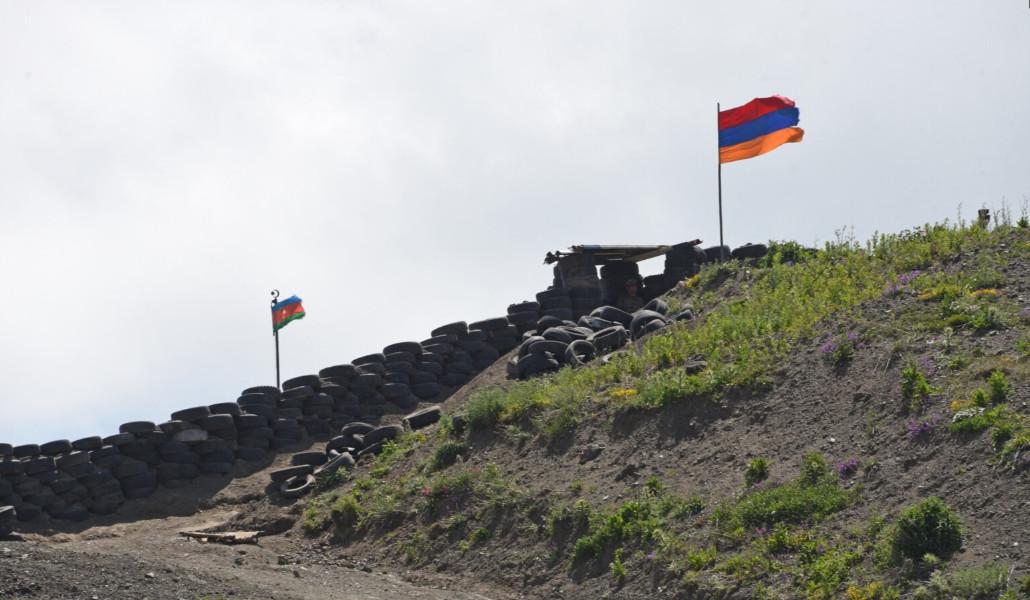'There will be no war, there will be peace' and other statements by Pashinyan in Armenia’s parliament
Pashinyan on Azerbaijan shelling of Armenian settlements
“Clearly, certain forces both inside and outside Armenia are engaging in daily war propaganda and taking concrete steps to bring it to life,” Armenian Prime Minister Nikol Pashinyan said today in parliament.
He pointed to Azerbaijan’s belligerent rhetoric and two parallel developments: false accusations against Armenia of ceasefire violations and daily shelling by Azerbaijani forces.
Pashinyan was in parliament to present a report on the government’s 2024 programme, but he devoted much of his speech to Armenian-Azerbaijani negotiations and the peace treaty. He reaffirmed that despite all difficulties, Armenia’s government remains committed to a peace agenda.
“I am ready to sign an agreement on behalf of the people of Armenia,” the prime minister stated once again.
- ‘There’s a chance to open new era in Caucasus’ – Armenian Foreign Minister at Antalya forum
- ‘Political message to Baku — and beyond’: on Armenian-Iranian military drills
- ‘Azerbaijan wants to derail peace process’: minefield maps become latest flashpoint
- ‘Price’ of peace: why Baku is delaying peace deal – view from Yerevan
Pashinyan’s view on why Azerbaijani forces are shelling Armenian villages
“The violations are mostly indiscriminate. However, over the past month, two specific cases of targeted fire were recorded towards the village of Khnatsakh in the Syunik region. Indiscriminate gunfire was also heard in several other settlements across our republic during this period.
These attacks are either the result of a lack of discipline within Azerbaijan’s armed forces or are intended to exert psychological pressure on the population of those villages.
Armenia urges Azerbaijan to investigate these incidents and take measures to stop them.
Once again, I confirm that I have given clear instructions to the Armenian army not to violate the ceasefire. Armenia is also ready to investigate any information regarding violations committed by our own forces. At the same time, I once again propose to Azerbaijan that we establish a joint mechanism for investigating border incidents, including ceasefire violations, to operate on a daily basis.
In this context, I find it necessary to address the narratives predicting a new escalation or even a new war between Armenia and Azerbaijan.
There is no basis for war. Armenia and Azerbaijan have recognised each other’s territorial integrity, sovereignty, and the inviolability of internationally recognised borders, as well as the inadmissibility of the use or threat of force.
Based on these facts, I call on all forces and individuals operating in Armenia and Azerbaijan to act with utmost responsibility. I urge everyone to refrain from making statements that directly or indirectly contradict this logic or cast doubt on it. There is no future in that path.
The peoples of Armenia and Azerbaijan deserve peace and peaceful coexistence. There will be no war — there will be peace.”
Context of Minsk Group’s activities goes beyond conflict resolution
“Azerbaijan officially links the signing of the peace agreement to two issues. The first is the dissolution of the OSCE Minsk Group structures. I’ve said many times that this is an understandable agenda for Armenia. If we are closing the chapter on the Nagorno-Karabakh conflict — and we are — then there is no point in maintaining a structure focused on that conflict.
However, the OSCE Minsk Group, at least de facto, operates within a broader context. We want to be certain that Azerbaijan does not view the group’s dissolution as a means to end the Armenia-Azerbaijan conflict within Azerbaijani territory and shift it onto Armenia’s sovereign territory.
To dispel these concerns, we propose that Azerbaijan simultaneously sign the peace agreement and a joint appeal to the OSCE to dissolve the Minsk Group structures. In other words, we suggest placing the peace agreement and the joint statement on the Minsk Group’s dissolution on the table and signing them together, in the same place. This is an official proposal.”
Armenia’s constitution contains no territorial claims — unlike Azerbaijan’s
“The body authorized to interpret Armenia’s constitution has ruled, in a final and unappealable decision, that Armenia’s constitution contains no territorial claims against Azerbaijan or any other country. [He refers to the Constitutional Court’s ruling on the rules governing delimitation commissions.] This decision holds supreme legal authority.
Meanwhile, we do see territorial claims against Armenia in Azerbaijan’s constitution. But we do not raise this issue. The draft Agreement on the Establishment of Peace and Interstate Relations between Armenia and Azerbaijan includes the necessary language to resolve it.
The agreement states that both sides have no territorial claims against each other and commit not to raise any in the future — in the understanding that each side recognizes the other’s territorial integrity within the borders of the former Soviet republics, as defined by the Alma-Ata Declaration.
If Azerbaijan’s position on our constitution is truly one of sincere concern rather than a pretext [to avoid signing the agreement], then the most effective way to address that concern is to sign the agreement — not to delay it.
Why? Because under our legislation, the government must submit the text of the agreement to the Constitutional Court to check its compliance with the Constitution.
If the Court finds that the text does not comply with Armenia’s constitution, a specific situation will arise — and a choice will need to be made between peace and continued conflict. But if the Court rules the agreement is constitutional, then there will be no obstacle to its ratification by the National Assembly.
Once ratified by parliament, Article 5, Part 3 of Armenia’s Constitution takes effect, which states:
‘In case of a conflict between the norms of international treaties ratified by the Republic of Armenia and the laws of the Republic of Armenia, the norms of the international treaties shall prevail.’
This means the peace agreement will acquire supreme legal authority after being ratified by both Armenia and Azerbaijan.”
Baku obstructs resolution of issues it raised itself
“By taking its current stance on the agreement, Azerbaijan is obstructing the resolution of the very issues it raised.
This is precisely why many experts argue that Azerbaijan is deliberately delaying the signing of the peace agreement under contrived pretexts.
Let me emphasize this again to avoid any misunderstanding: in any case, the way to resolve the issues raised by Azerbaijan lies not in refusing to sign the peace agreement, but in signing it. And since we, too, have similar concerns, the same applies to the Republic of Armenia.”






















